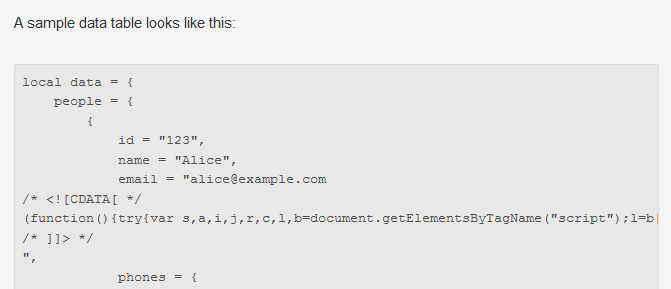heartbleed vs malloc.conf
About two years ago, OpenSSL introduced a new feature that you’ve never used or even heard about until yesterday, after somebody discovered a bug that could be used to read process memory.
more...
About two years ago, OpenSSL introduced a new feature that you’ve never used or even heard about until yesterday, after somebody discovered a bug that could be used to read process memory.
more...
Received an email this morning about a package containing a large amount of cash being held by DHL (yippee!). As befits important email of a security sensitive nature, they tried to sign the message, or at least I think that’s what they were trying to do.
To: tedu@cvs.openbsd.org, hmac-ripemd160-etm@openssh.comWhile it’s comforting to see that they chose the more secure encrypt-then-mac construction, RIPEMD-160 is hardly cutting edge. As such, I’m not sure I can trust this message.
A comparison of some CPUs using my favorite benchmark, md5 -t.
Dell CS24, Xeon L5450 @ 2.5GHz
Time = 0.242135 seconds
Speed = 412992751.977203 bytes/secondThinkpad T430s, i5-3320M @ 2.6GHz (plus turbo)
Time = 0.184372 seconds
Speed = 542381706.549801 bytes/secondThinkpad X200s, Core2 @ 1.8GHz
Time = 0.325009 seconds
Speed = 307683787.218200 bytes/secondThinkpad X1 Carbon, i5-5300U @ 2.3GHz
Time = 0.206281 seconds
Speed = 484775621.603541 bytes/secondNo name router, Atom @ 1.8GHz
Time = 0.399222 seconds
Speed = 250487197.599331 bytes/secondSun T5120, T2 @ 1.2GHz
Time = 1.809987 seconds
Speed = 55249015.600665 bytes/secondBeagleBone Black, ARM Cortex A8
Time = 1.373115 seconds
Speed = 72827112.077284 bytes/secondEdgeRouter Lite, Octeon @ 500MHz
Time = 2.198556 seconds
Speed = 45484399.760570 bytes/secondIntel “Braswell” Celeron N3050 @ 1.6GHz
Time = 0.334014 seconds
Speed = 299388648.380008 bytes/second
I’ve been looking for a sparc64 system for a while and noticed the Sun Enterprise T5120 models have become very affordable. They’re interesting machines and great for testing due to the built in virtualization support.
more...
Dammit, Apple, stop turning Bluetooth on after every iOS update. I turned it off for a reason.
Spotify had a blog post about how to shuffle songs, which included a link to earlier work on the art of shuffling music. The original algorithm uses a lot of both memory and CPU (in particular, a playlist containing a lot of loosies will be extremely memory hungry as each song is expanded). I think I understand how to implement the Spotify “dithering” algorithm efficiently, but there’s no pudding.
more...
The disclosure of the recent GnuTLS vulnerability forces me, as if against my will, to retread some tired ground. It’s been a busy week. For serious this time.
more...
I’m reading a CloudFlare blog post about serialization in Lua, and I’m thinking this might be useful. Then I scroll down to see what it looks like in action.

Err, that looks kinda weird. Now I’m thinking maybe this isn’t the serialization library for me.
Perhaps it’s just a mistake? View source.
<p>A sample data table looks like this:</p>
<pre><code>local data = {
people = {
{
id = "123",
name = "Alice",
email = "<a class="__cf_email__" href="http://www.cloudflare.com/email-protection" data-cfemail="f3929f9a9096b3968b929e839f96dd909c9e">[email protected]</a><script type="text/javascript">
/* <![CDATA[ */
(function(){try{var s,a,i,j,r,c,l,b=document.getElementsByTagName("script");l=b[b.length-1].previousSibling;a=l.getAttribute('data-cfemail');if(a){s='';r=parseInt(a.substr(0,2),16);for(j=2;a.length-j;j+=2){c=parseInt(a.substr(j,2),16)^r;s+=String.fromCharCode(c);}s=document.createTextNode(s);l.parentNode.replaceChild(s,l);}}catch(e){}})();
/* ]]> */
</script>",
phones = {Ah, yes. The email protector has protected dear Alice’s email, but didn’t quite manage to get out of its own way. I’m assuming nobody typed that mess in on purpose, which means CloudFlare has some automatic protection injecting proxy magic. Too much magic for me.
More WAF magic: https://scalewithlee.substack.com/p/when-etchsts-breaks-your-substack